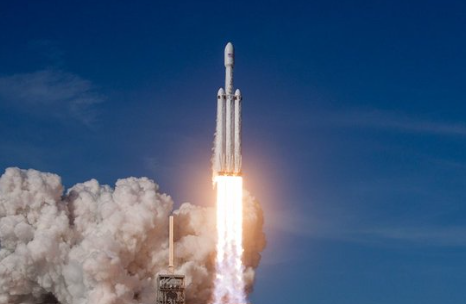It looks like it is up to Elon Musk to destroy the International Space Station.
NASA has awarded SpaceX a contract nearing $1 billion to construct the spacecraft designated to deorbit the International Space Station (ISS) once it concludes its operational life in 2030. This initiative marks a critical step in responsibly retiring the nearly three-decade-old orbiting laboratory, ensuring it poses no risk to populated areas upon re-entry to Earth.
NASA awards SpaceX nearly $1B contract to decommission the Space Station (ISS) and crash it into the sea @NASA @SpaceX @Musk #Breaking #ISS #SpaceStation #ISS #Space #technology #NASA https://t.co/2mAgdxVhe7
— thetechstartups (@thetechstartups) June 27, 2024
The contract, valued at $843 million, entrusts SpaceX with the development of the U.S. Deorbit Vehicle, which is pivotal for safely guiding the ISS out of orbit. The spacecraft developed by SpaceX is expected to undergo a destructive breakup during its re-entry process, breaking apart in a controlled manner to minimize debris and mitigate risks associated with the descent.
Since its launch in 1998, the ISS has been a collaborative effort involving five space agencies: NASA, the Canadian Space Agency, the European Space Agency, the Japan Aerospace Exploration Agency, and the State Space Corporation Roscosmos. Each agency is responsible for the management and control of its supplied hardware, contributing to the ISS’s status as a symbol of international cooperation in space exploration.
The decision to conclude the station’s service life comes after continuous habitation since the arrival of its first long-term residents in 2000. Over the years, the ISS has facilitated numerous scientific discoveries and technological advancements, serving as a unique venue for research in microgravity conditions.
NASA Awards SpaceX $843 Million Contract to “Deorbit” ISS in 2030
Follow 👉 @valuetainmentTV for more stories like this.https://t.co/lbCypBX5hK
— Valuetainment Media (@ValuetainmentTV) June 27, 2024
Under the terms of the contract, SpaceX, the aerospace company founded by Elon Musk, will not only develop but also deliver the spacecraft to NASA. Upon completion, NASA will assume ownership and manage the operations throughout the deorbit mission. This transition underscores NASA’s ongoing commitment to space exploration and its reliance on private sector partnerships to achieve its ambitious objectives.
The selection of SpaceX for this critical task reflects the company’s proven track record in space technology and mission execution. However, the specifics of the spacecraft’s design and the exact mechanics of the deorbit process remain under wraps, pending further developments and testing by SpaceX in collaboration with NASA.
NASA awards SpaceX nearly $1 billion contract to build ISS deorbit spacecraft pic.twitter.com/Ukp6uyLYPp
— Good Morning Asheville (@goodmorningavl) June 27, 2024
As the planned retirement of the ISS approaches, the focus on ensuring a safe and controlled deorbit procedure highlights the complexities involved in ending the service life of such a significant space structure. The operation will not only require precision engineering but also careful coordination among the international partners who have maintained the station for over two decades.
Key Points:
i. NASA has awarded SpaceX a contract worth approximately $843 million to develop a spacecraft tasked with safely deorbiting the International Space Station (ISS) by 2030.
ii. The spacecraft, known as the U.S. Deorbit Vehicle, will be responsible for guiding the ISS out of orbit and ensuring it breaks up destructively upon re-entry to Earth, avoiding any risk to populated areas.
iii. The ISS, a collaborative project involving multiple space agencies including NASA, ESA, and Roscosmos, has been operational since 1998 and will end its service after over three decades.
iv. Once SpaceX completes the development of the spacecraft, NASA will take ownership and manage its operation through the mission to decommission the ISS.
v. This contract highlights the continued reliance of NASA on private sector partnerships, like that with Elon Musk’s SpaceX, to achieve complex space missions.
James Kravitz – Reprinted with permission of Whatfinger News



